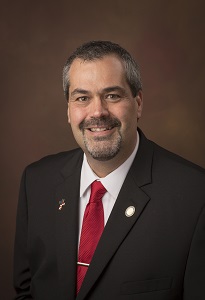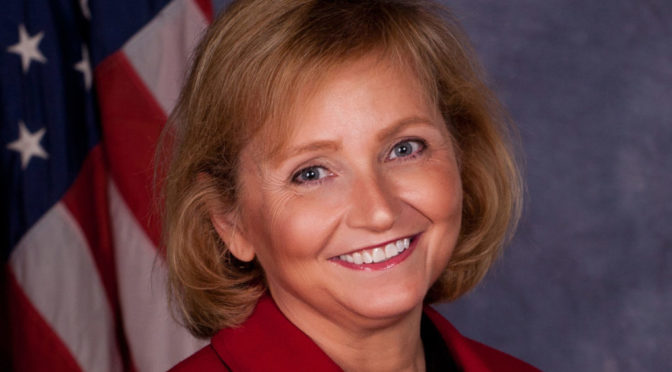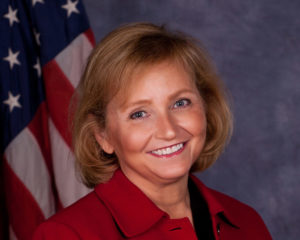CALENDAR
Monday, March 9
Ø Final action: SB 474 — Permitting student athletes to receive compensation for the use of their name, image, likeness rights or athletic reputation when 15 other states adopt similar legislation. (8:30, Commerce, 548-S)
Ø Final Action: SB 375— Providing for the FORWARD transportation program. (10:30, Ways and Means, 548-S)
Ø Hearing: HB 2515 — Creating the Kansas promise scholarship program.(1:30, Education, 144-S)
Ø 2:30 p.m. session
Tuesday, March 10
Ø Hearing: HB 2451 — Amending Kansas department of agriculture division of animal health license, permit and registration renewal deadlines.(8:30, Agriculture and Natural Resources, 159-S)
Ø Hearing: HB 2462 — Updating provisions related to the Kansas department of agriculture division of conservation.(8:30, Agriculture and Natural Resources, 159-S)
Ø Possible final action: HB 2506 —Expanding the military spouse and servicemember’s expedited licensure law to certain other license, certificate or registration applicants. (8:30, Commerce, 548-S)
Ø Hearing: SCR 1601 — Constitutional amendment eliminating transfers from the state highway fund.(8:30, Transportation, 546-S)
Ø Hearing: SB 360 — Authorizing certain sales taxation authority for the Sherwood improvement district. (9:30, Assessment and Taxation, 152-S)
Ø Hearing: HB 2118 — Providing income tax credits for aerospace and aviation program graduates and their employers. (9:30, Assessment and Taxation, 152-S)
Ø Hearing: HB 2509— Vacating certain blocks in the original town plat set aside for a college and a park of the city of Americus and vesting fee simple title in the city.(9:30, Ethics, Elections and Local Government, 142-S)
Ø Hearing: HB 2510— Special districts may be dissolved and responsibilities assumed by a city.(9:30, Ethics, Elections and Local Government, 142-S)
Ø Hearing: HB 2583— Clarify the vacation of territory from city boundaries or release of easements. (9:30, Ethics, Elections and Local Government, 142-S)
Ø Hearing: HB 2479— Codifying the NAIC corporate governance model regulation into statute. (9:30, Financial Institutions and Insurance, 546-S)
Ø Hearing: SB 467 — Creating a statewide alert program for missing military members. (10:30, Federal and State Affairs, 144-S)
Ø Hearing: SB 468 — Providing the state fire marshal with law enforcement powers and requiring an investigation of deaths resulting from fire. (10:30, Federal and State Affairs, 144-S)
Ø Hearing: HB 2429— Adding a public defender to the Kansas criminal justice reform commission. (10:30, Judiciary, 346-S)
Ø Hearing: HB 2447— Changing how two-way electronic audio-visual communication is used in courts. (10:30, Judiciary, 346-S)
Ø Hearing: HB 2448— Changing penalties for crimes related to motor vehicles. (10:30, Judiciary, 346-S)
Ø Hearing: HB 2449— Changing the requirements for board of indigents’ defense services appointments. (10:30, Judiciary, 346-S)
Ø Hearing: SB 274— Eliminating KPERS working-after-retirement employer contribution requirement when first employing retirees aged 65 or older. (10:30, Ways and Means, 548-S)
Ø Hearing: HB 2346 — Relating to standards for school-administered vision screenings.(1:30, Education, 144-S)
Ø Hearing: HB 2487 — Including emotional disability rather than emotional disturbance in the definitions of “children with disabilities” and “individuals with disabilities.”(1:30, Education, 144-S)
Ø 2:30 p.m. session
Wednesday, March 11
Ø Hearing: SB 435 — Providing for the use of personal package delivery devices on sidewalks and crosswalks, exempting such devices from motor vehicle regulation and preempting additional municipal regulation. (8:30, Commerce, 548-S)
Ø Hearing: SB 459 — Creating the distracted driving violation and prohibiting the use of a wireless telecommunications device while operating a motor vehicle. (8:30, Transportation, 546-S)
Ø Hearing: SB 338 — Allow municipalities to adopt an alternate budget procedure. (9:30, Assessment and Taxation, 152-S)
Ø Hearing: SB 414 — Exempting grocery stores from sales tax assessments for community improvement district. (9:30, Assessment and Taxation, 152-S)
Ø Hearing: SB 457 — Requiring use of the soil survey version dated September 16, 2019, for mapping agricultural land for property tax purposes. (9:30, Assessment and Taxation, 152-S)
Ø Hearing: SB 462 — Prohibiting disclosure by the secretary of revenue of certain sales and use tax information to taxing officials of other states. (9:30, Assessment and Taxation, 152-S)
Ø Hearing: SB 454— Creating exemptions in the open records act for election security records and cyber security records. (9:30, Ethics, Elections and Local Government, 142-S)
Ø Hearing: SB 458— Increasing the compensation of members of the state banking board. (9:30, Financial Institutions and Insurance, 546-S)
Ø Hearing: SB 407— Requiring the Kansas department for aging and disability services to operate acute psychiatric inpatient beds for children in Hays and Garden City. (9:30, Public Health and Welfare, 118-N)
Ø Hearing: HB 2646— Allowing the attorney general to coordinate training for law enforcement agencies on missing and murdered indigenous people. (10:30, Federal and State Affairs, 144-S)
Ø Hearing: HB 2521— Enacting the revised uniform athlete agents act. (10:30, Judiciary, 346-S)
Ø Hearing: SB 368— Transferring $268,412,000 from the state general fund to the Kansas public employees retirement fund in FY 2020 and eliminating certain level-dollar KPERS employer contribution payments. (10:30, Ways and Means, 548-S)
Ø Hearing: HB 2503— Authorizing the transfer of $268,412,000 from the state general fund to the KPERS fund during fiscal year 2020 and eliminating certain level-dollar employer contribution payments. (10:30, Ways and Means, 548-S)
Ø Hearing: SB 418— Requiring the joint committee on information technology to meet on a monthly basis. (10:30, Ways and Means, 548-S)
Ø Hearing: HB 2540 — Requiring moneys attributable to at-risk student weighting be expended for approved at-risk educational programs.(1:30, Education, 144-S)
Ø 2:30 p.m. session
Thursday, March 12
Ø Hearing: HB 2464 — Updating egg repacking requirements for retailers.(8:30, Agriculture and Natural Resources, 159-S)
Ø Hearing: HB 2432 — Creating the Kansas pesticide waste disposal program and allowing up to $50,000 to be transferred annually from the Kansas agricultural remediation fund to a new Kansas pesticide waste disposal fund.(8:30, Agriculture and Natural Resources, 159-S)
Ø Hearing: HB 2507 — Liability protection for businesses that participate in high school work-based learning programs. (8:30, Commerce, 548-S)
Ø Hearing: HB 2420 — Allowing military surplus vehicles to register with the division of vehicles for road use. (8:30, Transportation, 546-S)
Ø Hearing: SB 396 — Discontinuing apportionment of countywide retailers’ sales tax imposed for general purposes between the county and cities located therein. (9:30, Assessment and Taxation, 152-S)
Ø Hearing: SB 460 — Increasing the sales tax collection thresholds relating to time frames for filing returns and paying sales tax by certain retailers and providing that electronic filing is not required for certain retailers. (9:30, Assessment and Taxation, 152-S)
Ø Hearing: HB 2466 — Enacting the Kansas taxpayer protection act; requiring the signature and tax identification number of paid tax return preparers on income tax returns; authorizing actions to enjoin paid tax return preparers from engaging in certain conduct. (9:30, Assessment and Taxation, 152-S)
Ø Hearing: HB 2452— Providing certain KP&F tier II spousal and children’s benefits for death resulting from a service-connected disability. (9:30, Financial Institutions and Insurance, 546-S)
Ø Hearing: HB 2500— Amending the Kansas power of attorney act regarding the form of a power of attorney and the duties of third parties relying and acting on a power of attorney. (10:30, Judiciary, 346-S)
Ø Hearing: SB 437 — Enacting the Kansas electricity bill reduction bonds act and authorizing the state corporation commission to issue securitized ratepayer-backed KEBRA bonds for electric utility property.(1:30, Utilities, 548-S)
Ø 2:30 p.m. session
Friday, March 13
Ø Final action: HB 2462 — Updating provisions related to the Kansas department of agriculture division of conservation. (8:30, Agriculture and Natural Resources, 159-S)
Ø Final action: HB 2451 — Amending Kansas department of agriculture division of animal health license, permit and registration renewal deadlines. (8:30, Agriculture and Natural Resources, 159-S)
Ø Hearing: HB 2702 — Decoupling the KIT and KIR workforce training programs from the high-performance incentive fund program and enhancing the workforce training tax credit. (8:30, Commerce, 548-S)
Ø 8 a.m. session





